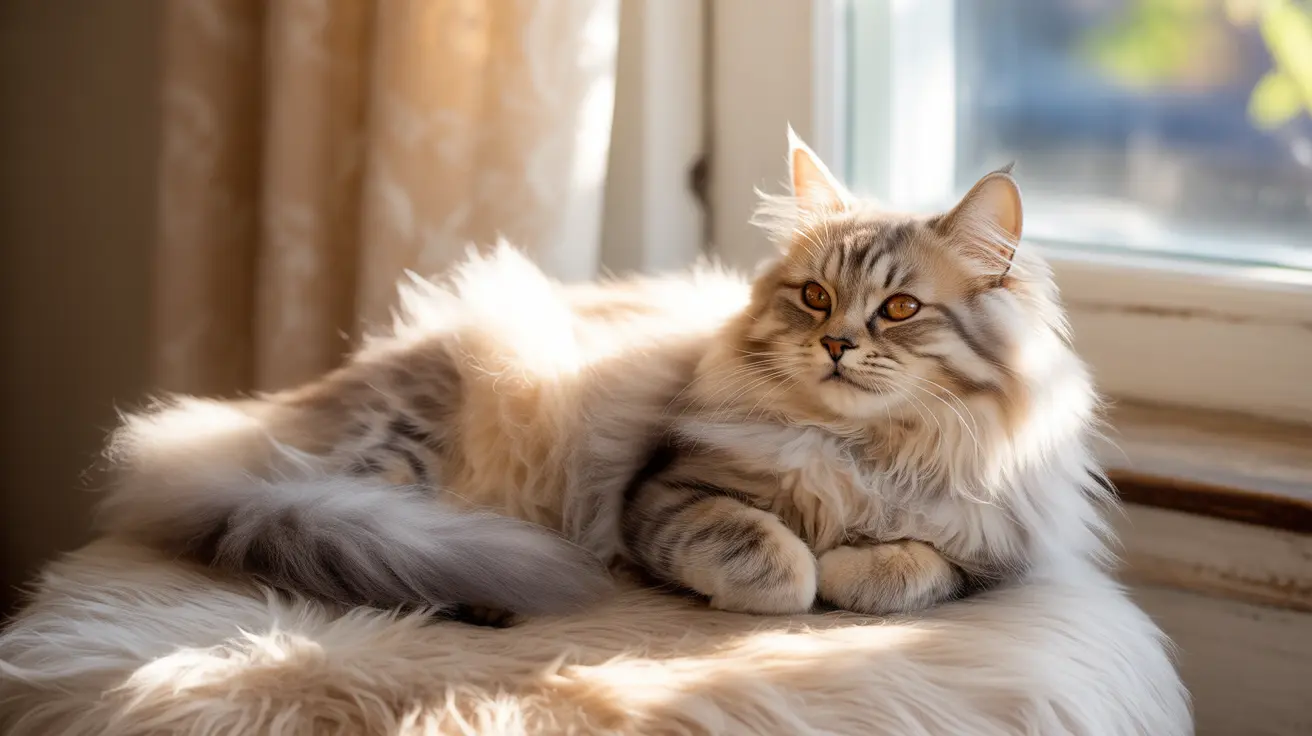What Causes Black Cat Rusting?
If you've noticed your black cat's fur taking on a reddish-brown tinge, you're observing a phenomenon known as "black cat rusting." This common occurrence can transform your cat's sleek black coat into various shades of rusty brown, particularly visible under direct sunlight or bright lighting conditions.
While this color change might seem concerning at first, it's usually a natural process that affects many black cats. Understanding the causes and implications of cat rusting can help you determine whether it's a simple cosmetic change or if it requires veterinary attention.
The Science Behind Black Cat Rusting
The primary cause of rusting in black cats lies in the breakdown of eumelanin, the pigment responsible for their dark fur color. This process can occur through several mechanisms:
Sun Exposure Effects
Ultraviolet rays from the sun gradually break down the eumelanin pigment in your cat's fur, leading to a lighter, rusty appearance. This process is particularly noticeable in cats who enjoy sunbathing or spend significant time outdoors.
Nutritional Factors
The production of black fur pigment depends on specific amino acids, particularly tyrosine and phenylalanine. When cats don't get enough of these nutrients, their fur may develop a reddish-brown tinge. While rare in cats eating commercial pet food, this can occur with homemade diets or underlying health conditions.
Health Implications and Warning Signs
While rusting is typically harmless, certain situations warrant closer attention:
- Sudden or dramatic color changes
- Accompanying symptoms like lethargy or appetite changes
- Patches of fur loss or unusual texture
- Weight loss or behavioral changes
Managing and Preventing Coat Rusting
If you're concerned about your cat's coat rusting, consider these management strategies:
- Provide a high-quality, balanced diet rich in essential nutrients
- Limit excessive sun exposure, especially during peak hours
- Regular veterinary check-ups to monitor overall health
- Maintain proper indoor humidity levels
- Regular grooming to maintain coat health
When to Consult a Veterinarian
While most cases of black cat rusting are cosmetic, certain situations require professional evaluation:
- Rapid color changes
- Additional symptoms of illness
- Significant changes in eating or drinking habits
- Unusual skin conditions or irritation
- Changes in behavior or energy levels
Frequently Asked Questions
Why is my black cat's fur turning reddish-brown or rusty in the sun?
This is typically caused by sun exposure breaking down the eumelanin pigment in your cat's fur, resulting in a lighter, rusty appearance. It's a natural process and usually harmless.
Can nutritional deficiencies cause a black cat's coat to rust or fade?
Yes, deficiencies in amino acids like tyrosine and phenylalanine can cause coat color changes. However, this is rare in cats eating complete commercial diets.
How can I tell if my black cat's rusting fur indicates a health problem?
If the rusting is accompanied by other symptoms like lethargy, weight loss, or changes in appetite, consult your veterinarian. Otherwise, it's likely just a normal cosmetic change.
Does sun exposure permanently damage a black cat's fur color?
While sun exposure can cause temporary color changes, new fur growth will be the original black color. However, continued sun exposure will affect the new growth as well.
What steps can I take to prevent or manage rusting in my black cat's coat?
Provide a balanced diet, limit excessive sun exposure, and maintain regular grooming practices. These steps can help minimize rusting, though some color change may still occur naturally.
Conclusion
Black cat rusting is a common and typically benign phenomenon that affects many dark-colored cats. While it may alter your cat's appearance, it usually doesn't impact their health or happiness. By understanding the causes and monitoring for any concerning symptoms, you can ensure your cat stays healthy while sporting their unique rusty highlights.






